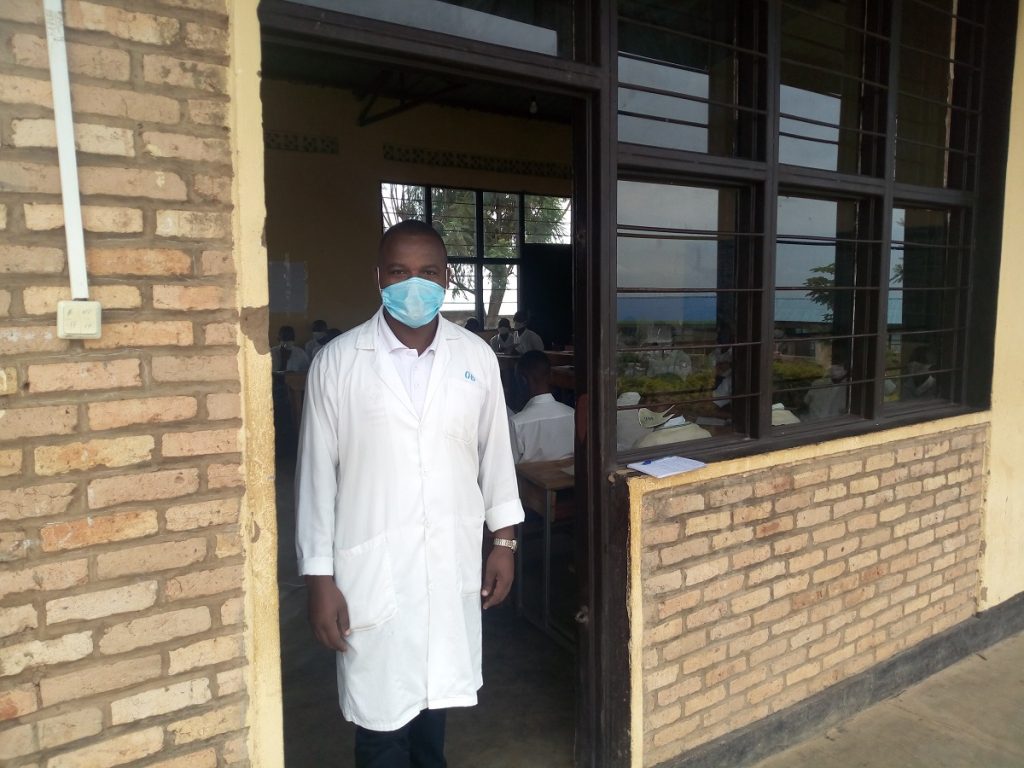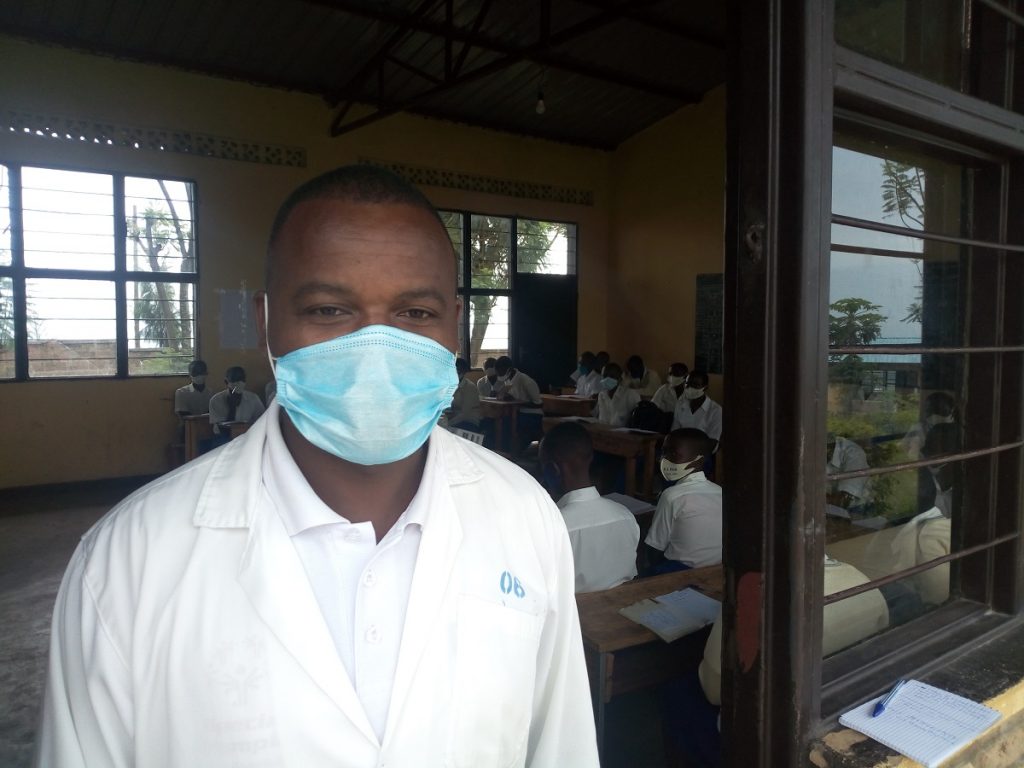At least 22 secondary and TVET schools in Kamonyi District have implemented the school-based mental health program, with a target to be expanded to 69 schools in total, Pressbox has learnt.
The school-based mental health programme was launched by the government of Rwanda in December 2020, as part of the efforts to strengthen the fight against mental health illness among the youth, countrywide.
Through the programme, teachers are equipped with basic skills to help students in the wake of a mental health condition.
“We train specific teachers from different schools on how mental health cases can be handled at the school before the child can be sent to a hospital for further treatment. We want to reach out to all the targeted schools in about three months,” said Monique Imaragahinda, a psychologist in the mental health department at Remera Rukoma Hospital, during exclusive interview with Pressbox.
Louis Nzeyimana, a teacher at Groupe Scolaire Rosa Mystica Kamonyi, is among the trained teachers to help students in case of any mental health challenge symptom. He says that the gained skills are crucial enough to contribute to the wellbeing of the students in terms of their mental health.
“I was initially very happy to have received the training, because it is obvious that in our communities there are problems that affect children, and consequently, when the children come to school, sometimes they don’t concentrate well on their studies, rather they feel depressed, and it results in mental disorders that need to be treated by well trained individuals,” he said.
Nzeyimana added that after receiving the training, he has been able to analyze students’ behavior, their familial backgrounds, and come up with a good way of addressing the manifested mental challenges.

Speaking about the impact of the program on the school she manages, Marie Crescence Uwarurema, the Headmistress of Groupe Scolaire Rosa Mystica Kamonyi, said: “There is a remarkable impact of this program on the mental health status among students in our school, as it reduced the number of students who had been going to different hospitals for treatment. Since we got our teachers trained, any student who manifests any sign of mental challenge, we firstly try to help them before thinking of any other diagnosis.”
Uwarurema added that in order to steadfastly sustain the program, the school would wish to have a specific teacher for the program, in addition to the two trained ones. She suggested for availability of a specific room in which beneficiaries of the program would receive care, more safely.
Program for young people, future mental health stability
According to Fidele Uwamahoro, in charge of Secondary and TVET Education in Kamonyi District, for the reason that the age stage of children at the secondary school level is characterized by unusual behavior, which would easily lead to mental disorders, “This program of mental health came as a right response among young people in schools. We need the program in as many schools as possible,” he said.
Countrywide, the programme is being implemented by the Ministry of Health in partnership with the Ministry of Education, in more than 800 secondary, TVET schools and youth centres.
“The more young people learn about mental health early and learn how to seek help, the more we secure a bright future regarding the mental health situation in Rwanda,” said Clementine Nishimwe, a professional clinical psychologist based in Kamonyi District.
In October, 2021, UNICEF warned in its flagship report that Children and young people could feel the impact of COVID-19 on their mental health and well-being for many years to come.
As COVID-19 heads into its third year, the impact on children and young people’s mental health and well-being is expected to weigh heavily. According to the latest available data from UNICEF, globally, at least 1 in 7 children has been directly affected by lockdowns.
Statistics from the recent Rwanda Mental Health Survey conducted in 2018 show that there is a 10.2% prevalence of mental disorders among 14-to 18-year-olds.





